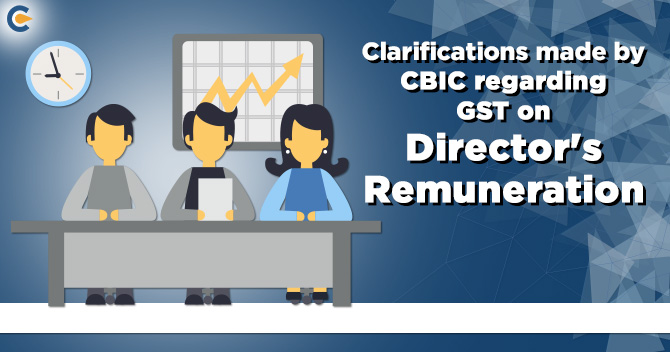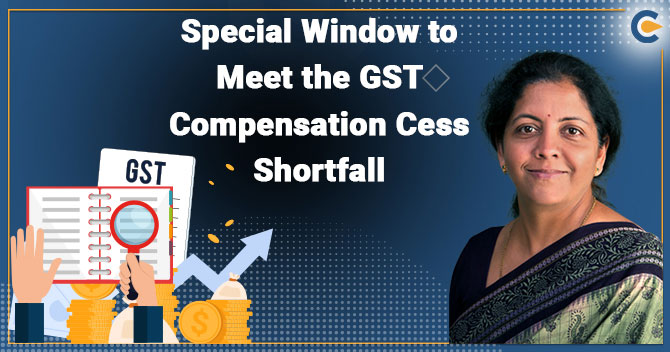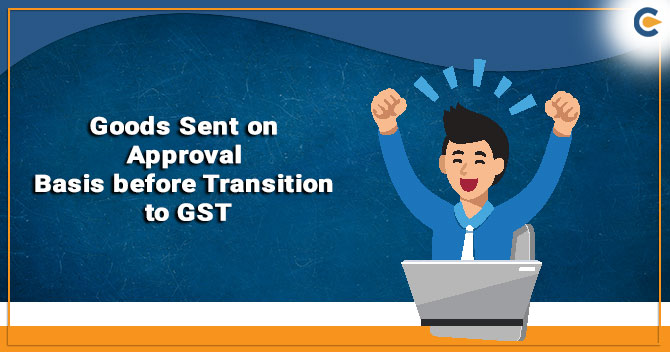In respect of the applicability of GST on director’s remuneration, the Central Board of Indirect Taxes and Customs (In short, known as CBIC) has released the circular for clarification on the 10th of June, 2020. All the issues regarding this matter have got cleared in CGST circular no. 140/2020.
The supreme authority, i.e., directors’, receives the compensation amount from the company for the Services that they render. Issuance of remuneration paid to directors takes place after getting approval from the Board of Directors and Shareholders’ end. Directors’ remuneration can be in the form of salary, fees, or use of assets of the company as well.
Who can get Entitled as a Director?
On the basis of their liabilities as well as responsibilities towards the corporation or entity, the following persons can get entitled as a director


- According to the goods and service tax law, those services that an employee provides to the employer conforming to the employment agreement are neither acknowledged as the supply of services nor supply of goods. Therefore, in such cases, there is a non-applicability of GST.
- Nevertheless, if the services’ classification is not in the form of a relationship between employer and employee, then such remuneration would get GST levied.
- Furthermore, as per Notification No. 13/2017, the (service recipient) company will be depositing the dues concerning goods and service tax on the mechanism of reverse charge with the government in that case.
- To be precise, there is a clear outlining classification criterion of the director as an employee or not.
GST on Director’s Remuneration
The circular on the taxability of GST on director’s remuneration is classified into three parts-
- GST on the fees of Independent Director
- GST on the remuneration paid to Executive Director
- GST on the remuneration paid to Non-Executive Director
GST on the Independent Director Fees
- Usually, the independent director’s job is to provide expert guidance to the Board of Directors[1], whenever necessary.
- Independent Directors don’t maintain direct relations with the company.
- These directors don’t engage themselves in regular business activities and functions of the company.
- Thus, they won’t get classified as a partner/proprietor or employee of the company for a period of up to three years before becoming appointed as an independent director.
- Consequently, GST will be applicable to independent directors’ remuneration.
- Applicability of Reverse Charge Mechanism came into the picture. That’s why it becomes the duty of recipient of services (company) to make the payment of GST on director’s remuneration (entire amount) at the rate of 18%.
Read our article:Provisions for CGST ITC Rule 36 (4) for February, 2020 to August, 2020 is clarified by CBIC
Applicability of GST on Director’s Remuneration (Non-Executive Directors)
- The primary responsibilities of non-executive directors are concerned with planning and framing the policies of the company.
- They have no role to play in the company’s day-to-day activities taking place.
- In addition to this, the relationship is chiefly, ‘contract for service’ tax deducted at source under the head Section 194J of the Income Tax Act gets in close connection on the fees/remuneration paid, which will get recorded in the accounts books, not in the same line but separate from the “salaries” head.
- All the services delivered by the company’s non-executive director are subject to goods and service tax and would fall under RCM of GST.
- Applicability of GST on the total amount of director’s remuneration will be at the rate of 18%.
Applicability of GST on Director’s Remuneration (Executive Director)
- Most of the organization’s responsibilities lie in the executive director’s hand, who is also referred to as managing director/whole-time director or company’s working director.
- As per the Companies Act of 2013, the whole-time director has been defined as an inclusive definition.
- Thus, executive directors would earn remuneration in both of the forms, i.e., on the one hand, as an employee and, on the other hand, not as an employee.
Case in Which the Whole-Time Director is a Company’s Employee
Circumstances in which the director is classified as an employee-
- Contract of Service: All the activities conducted by the director of the company are in the course of employer and employee relationship.
- (Tax deducted at source) under the Income Tax Act- Section 192 will be applicable to the salary that directors receive.
- Recorded in the accounts books under the “salaries” head.
No GST would get levied on the remuneration paid to the whole-time director/executive director/managing director if either of the criteria would get fulfilled.
Case in Which the Whole-Time Director is Not a Company’s Employee
Situations in which the director won’t get classified as a company’s employee-
- Contract for Service- All the activities conducted by the director are considered as professional services of any director, no matter what is the designation and name of the director.
- Applicability of tax deducted at source under Section 194J, Income Tax Act on the remuneration or fees paid to the company’s director.
- Recorded in the accounts books under a separate head different from the head “Salaries.”
In case of the fulfillment of either of the criteria, services that a company’s director provides is chargeable under GST at the rate of 18% and would come under the purview of RCM of goods and service tax.
CBIC Clarification: Briefing Up
- Taking applicability of GST on director’s remuneration into consideration, on the 10th of June 2020, the CBIC made a clarification on this issue vide CGST Circular No. 140/2020.
- This circular clarified that remuneration of the director would be taxable up to the extent remuneration is beyond the employment terms.
- Payment of any specified amount in the course of employment will fall outside the taxability scope under the GST Act- Schedule 3.
- This circular has intertwined the provisions of the GST and Income Tax Act for determining the levy of GST on director’s remuneration.
- Taking note of lots of confusion created by the contrary rulings of ARA, i.e., Advance Ruling Authorities along with the probable impact associated with such transactions, the CBIC geared up with the circular, and it brought a massive relief to Indian taxpayers.
Read our article: Concept of Input Service Distributor under GST













